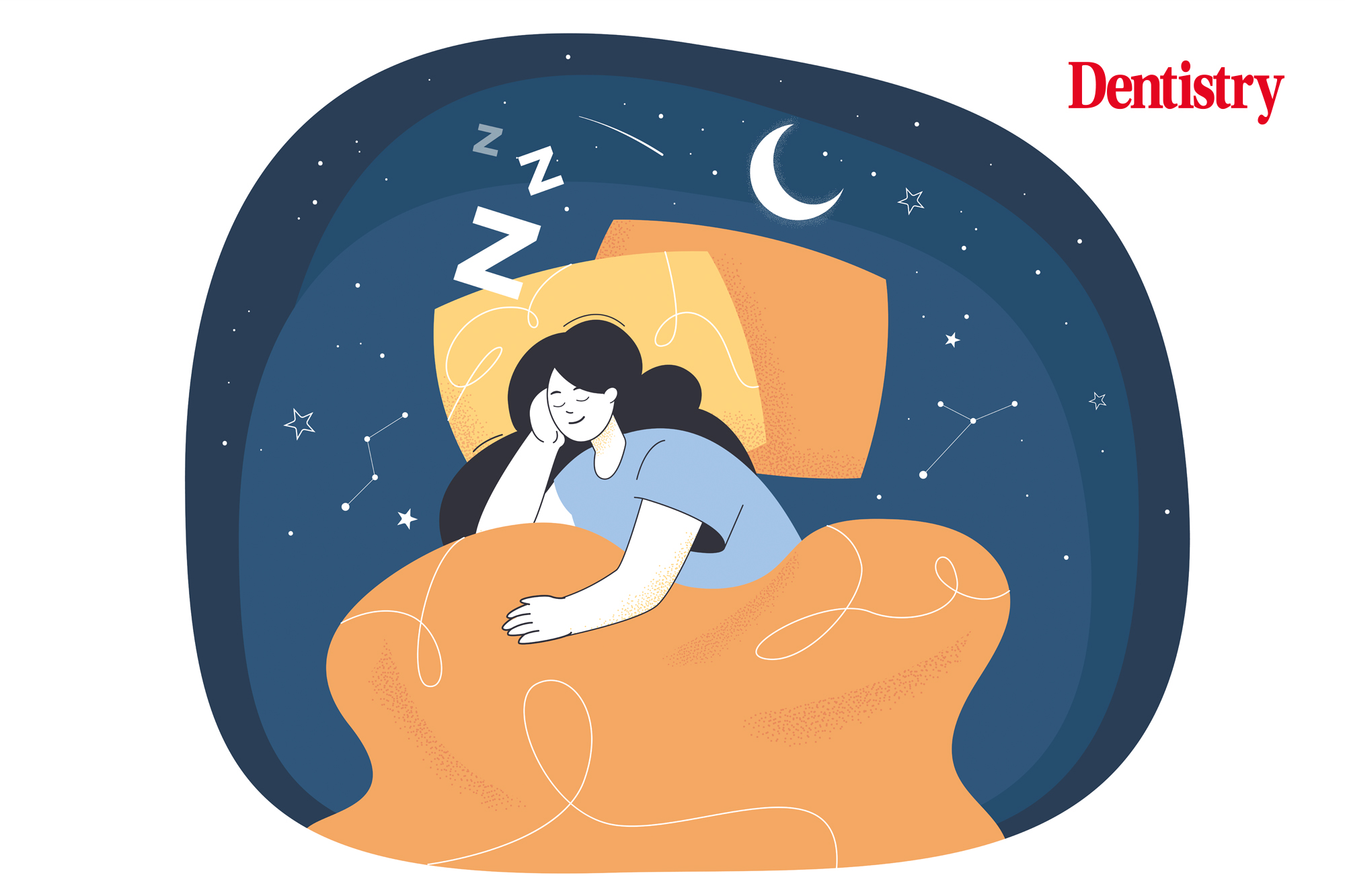
Mahrukh Khwaja discusses the importance of sleep for the mental health and wellbeing of dentists, and what you can do to improve it.
With May fast approaching, we draw closer to Mental Health Month. This is a special time in the wellness calendar that shines a light on different wellbeing themes.
Since anxiety is this year’s theme, and a commonly reported symptom of working in busy dental practices, so closely with patients, now is the time to take positive action towards better health. And so I introduce ‘The wellness mindset’, a new series designed to help you prioritise your own health and happiness.
Adopting a ‘wellness mindset’ means a set of positive thoughts, actions and beliefs that are aligned with developing greater resilience, connection, authenticity, meaning and thriving. Drawing on the neuroscience of wellbeing, and positive psychology, the vision with this series is to help you do just that!
Just like daily brushing and flossing, I’ll share with you the steps and tips to help you take a preventive maintenance approach to mental wellbeing.
In this article, I delve into strategies to help you manage your dental stressors.
The magic of sleep
If we think of our wellbeing as a house, then sleep would represent the foundation. Sleep can be a great aid for a competitive edge. Since 2005, for example, sleep coaches have often been vital members of athletes’ entourage, helping cyclists, footballers, basketball players and runners to achieve the best of what’s possible.
Applying the same logic, sleep may help dental professionals perform procedures better, feel more energetic, and have more energy to care for our patients.
We need sleep to maintain cognitive function, physical health, creativity and mood, yet we often try to stretch our days out to maximise our ‘productivity’. And if we are wanting to prioritise sleep, many of us may struggle with insomnia or sleep problems.
Sleep hygiene can go a long way in making a difference to our sleep experience.
Top tips
Here are my top steps to a good night’s sleep:
1. Grab your daily dose of daylight
Exposing yourself to plenty of daylight during the first hour of waking can help to tweak your body’s inbuilt clock for sleep (circadian rhythm).
2. Let go of worries
This could be through using a stress relief journal. Recording your worries, urgent to do tasks, feelings, thoughts and experiences in a journal may help you manage your emotions, as well as maintaining positive wellbeing.
3. Have a night-time wind down routine
This could include meditation, reading or having a shower. Having a routine like this sets our body for switching off and getting ready for sleep.
4. Dim the lights
Minimise bright lights in the evenings, particularly blue light of LED devices to ensure your body listens to its melatonin sleep triggers.
5. Cool down
Dial down your radiator in your bedroom to a cool 16 to 18 degrees.
6. Tech-free zone one-hour before bed
We want our brains to switch off, so avoid any devices that can overstimulate us.
7. Adopt a consistent sleep schedule
A regular sleep schedule (even on weekends) helps to maintain the body’s internal clock, and can help you fall asleep and wake up more easily. For a healthy adult, the recommended amount of sleep is at least seven hours, but most people don’t need more than eight hours to be well rested.
8. Create the right ambience and environment
Ensure a quiet, dark bedroom using blackout curtains and earplugs. You may want to add a nice aromatherapy mist like lavender to the mix to encourage you to relax.
9. Practise gratitude before nodding off
Every night before sleeping, name three things you are grateful for that happened that day, big or small. Cultivating an attitude of gratitude has been shown to boost happiness and life satisfaction.
10. Try sleep music or a sleep story
For some of us, soothing tones like ocean waves, forests or rain can help lull us into a sleepy state. Sleep stories from popular meditation apps, like Calm, can induce the same soothing magic as music.
Optimise your sleep
As a chronically troubled sleeper myself, I can fully appreciate the sheer importance of a good night’s sleep. It’s something that has really frustrated me throughout the years,
especially around my worries with its impacts on the next day’s treatment for patients.
Introducing sleep hygiene practices has really transformed the quality and quantity of my sleep.
Give these tips a go: optimise your sleep and take one step towards living the wellness mindset.
For further information, connect with Mahrukh on Instagram @mindninja.wellbeing or email [email protected].


